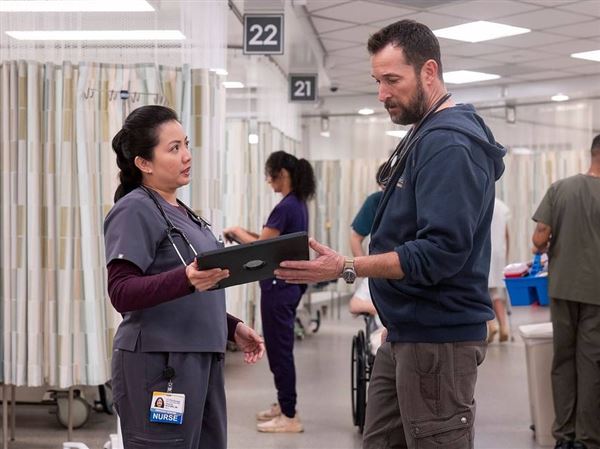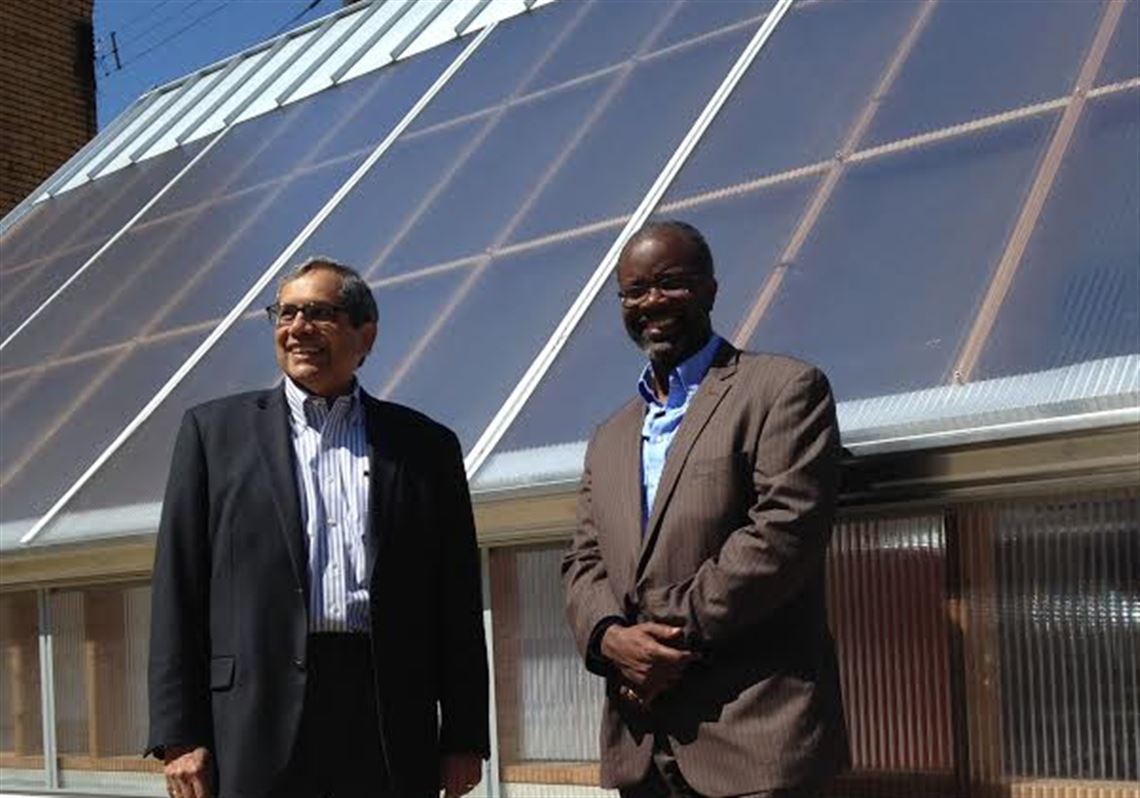If you’re not from Homewood, suspend what you think you know about it for a little visit to the 7300 block of Fleury Way.
It’s a beautiful day in the neighborhood, mid-60s without a cloud in the sky, and a solar-powered greenhouse is almost completed on the lot beside the Bible Center Church, which resides in a row of houses once claimed by crackheads.
Its pastor, Rev. John Wallace, who also occupies the Philip Hallen chair in community health and social justice in the University of Pittsburgh’s School of Social Work, gave the buildings a higher purpose in 2005 when he installed the church and an entrepreneurial youth development program there.
The Bible Center has expanded its influence on the block with a playground and the Oasis Farm and Fishery, which Rev. Wallace describes as a micro farm with outdoor and indoor growing capacity.
The project partly addresses Homewood’s near lack of food supplies, but there is so much more to this operation — and less.
It operates off the electric grid, solely on direct current, which saves on cost by not having to be converted. This country runs on alternating current, which allows for the gradual reduction of high voltage from generation to distribution to your home. But those conversions cost money. Solar arrays are DC, but they typically connect to the electrical grid and, thus, have to be converted to AC.
“Our students [at Pitt] are designing and building DC appliances as we speak,” said John Camillus, the Donald R. Beall professor of strategic management at Pitt’s Katz Graduate School of Business. With practiced replication, DC appliances can help people become energy independent.
Mr. Camillus is Rev. Wallace’s partner in the city’s first all-DC solar-powered greenhouse and co-founder of Building for Humanity, a Pitt-based mission to prove to companies that they can make profits by doing right by humanity.
One way to do right is to reduce the burden of utility costs on people of little means, and Mr. Camillus looked to his native India for inspiration in the energy design of the Oasis Farm and Fishery. The greenhouse will include an aquaponics setup to grow fish.
“We will have a STEM-education classroom under the solar array, with cooking demonstrations,” Rev. Wallace said.
The solar array will pay for the entire Bible Center’s energy use and the 480-square-foot greenhouse. All the stormwater that hits its roof will flow into a 500-gallon cistern, which has a filtering component that uses ultraviolet light to make it safe for the fish to swim in.
The design and materials were chosen to make the project almost maintenance free.
The contractors, Leaf Redevelopment and EcoCraft Homes, both specialize in building houses that use almost no energy.
Elliot Fabri Jr., vice president of EcoCraft Homes, said this project will be a benchmark for replication because there is nothing comparable.
“This is a new product type,” he said. “Three years ago, we would not have been able to find the fans, the pumps, the lighting, the low voltage equipment. We didn’t have the technology to support that with DC.”
Rev. Wallace and Mr. Camillus are bringing Pitt students in engineering, business and social work together as part of a larger effort to plant opportunities in Homewood.
“It’s an integration of disciplines that are often disparate,” Rev. Wallace said.
“The exciting thing besides having a cutting-edge space like this in Homewood” is using the model to make housing more affordable through energy savings, he said.
The cost of this model wasn’t quite as affordable as Mr. Camillus said he had hoped. Without divulging the amount, provided largely by foundations, he said, “We know where to cut costs next time. We need this to build credibility and to test the economic viability. This is a laboratory.”
Building for Humanity’s next project will use Pitt student designers to build and equip shipping containers with solar-powered computers for rural communities worldwide to use for education, small business development, remote medical consultation and water purification. The first ones will go to Botswana, Guatemala, India and Haiti, where Building for Humanity has academic connections.
Homewood lives squarely in the First World, but its selling points are often overlooked, and most people who don’t live there don’t even know it has selling points. With a unique, cutting-edge model of what the future may hold, Homewood now has a destination unlike any in Pittsburgh.
Diana Nelson Jones: djones@post-gazette.com or 412-263-1626.
First Published: April 25, 2016, 4:00 a.m.















